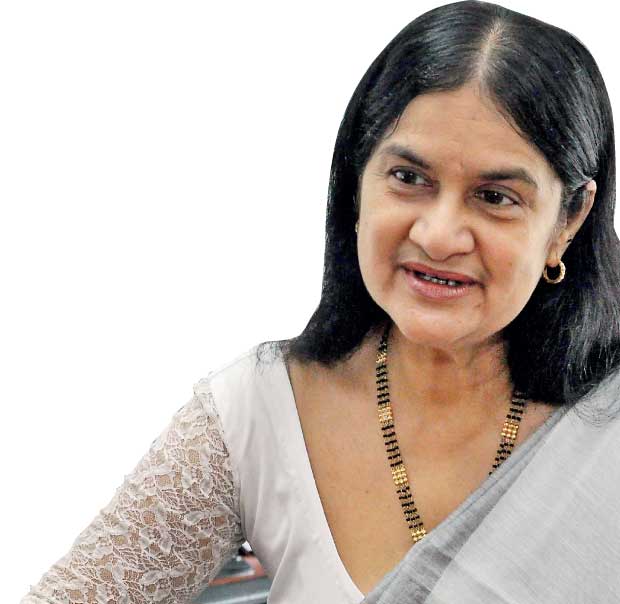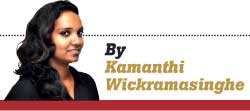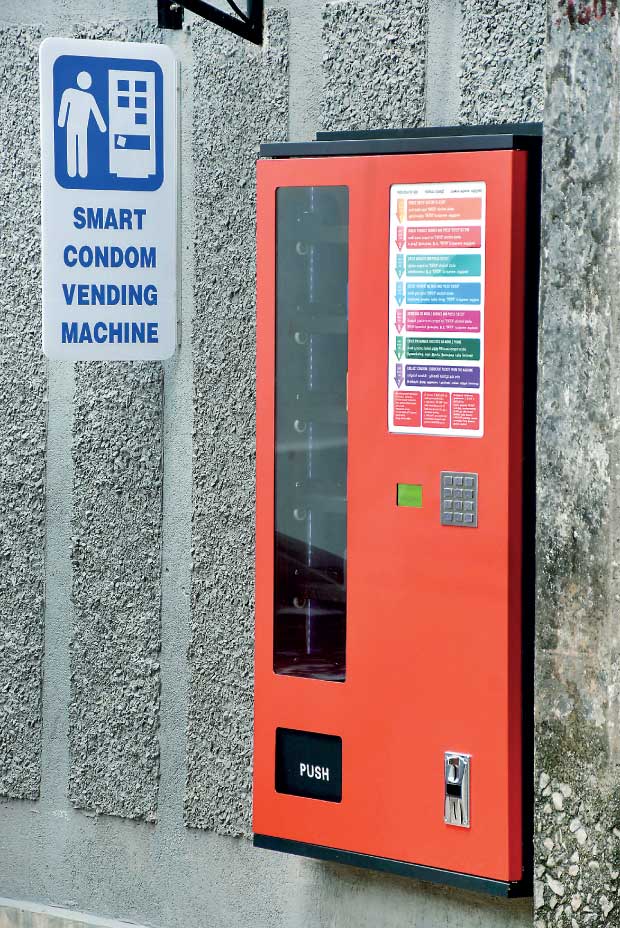20 Dec 2017 - {{hitsCtrl.values.hits}}

 Sexuality is part of what makes us human. In addition to its fundamental function of procreation, sex is also about sensual pleasure. According to psychology, many people long for this physical connection when trying to overcome their sense of alienation, isolation and loneliness. Although Asians end up with one partner in their life, the drive for sex would be different in people. In seeking sensual pleasure, people would often opt for unsafe sex methods which would lead to Sexually Transmitted Diseases (STDs) and other complications.
Sexuality is part of what makes us human. In addition to its fundamental function of procreation, sex is also about sensual pleasure. According to psychology, many people long for this physical connection when trying to overcome their sense of alienation, isolation and loneliness. Although Asians end up with one partner in their life, the drive for sex would be different in people. In seeking sensual pleasure, people would often opt for unsafe sex methods which would lead to Sexually Transmitted Diseases (STDs) and other complications.
 As a means of putting a halt to this phenomenon, various programmes were initiated in Sri Lanka as well.
As a means of putting a halt to this phenomenon, various programmes were initiated in Sri Lanka as well.
One such successful venture was the establishment of the Family Planning Association (FPA). While addressing various concerns in relation to sexual life and other matters the FPA has come a long way since its inception. Recently, the FPA introduced a Smart Condom Vending Machine in order to break stereotypes when purchasing the products and to promote the concept of safe sex in a broader perspective.
The Daily Mirror caught up with Thushara Agus, Executive Director of FPA, who shared her views regarding this bold initiative. She also spoke about the stigma associated with sexual matters and their future projects.
“Colombo has a night life and one of our main objectives is to prevent the spread of Sexually Transmitted Diseases (STDS)
There’s a range of condoms and a lubricant available in the machine. We have identified 10 locations within the Colombo city limits where these machines will be installed.
The Smart Condom Vending Machine (ingeniously named Vendom) will serve the purpose of purchasing your needs without having to go through the ‘embarrassment’
FPA and its services
The FPA was initiated back in 1953 as a volunteer-led organization to address issues pertaining to family planning, as the name suggests. “There was a high maternal mortality rate at the time and families used to have more than five children,” recalled Thushara. “Therefore the FPA responded to this growing concern and by the 1960s the Government took over the activities. The association conducted free family planning services through its maternal and child health programmes and these services are still available to date,” she explained.
At present the FPA is an expansive and well-known NGO in the country that has extended its services to Sexual and Reproductive Healthcare (SRH) and welfare as well. The FPA believes that reproductive health is a fundamental right of every woman and man in the human life cycle. As such some of the key areas it focuses on includes providing adequate information and services, training and interventions, seeking to improve the acceptability, accessibility and the quality of SRH and to integrate human rights based and gender sensitive approaches.
“Although the programme was introduced as a fully-fledged approach, we identified pockets of people who were underserved,” says Thushara further elaborating on the need for these services. “A vulnerable group included young people who didn’t want to have safe sex and sexually active elderly people. Therefore we introduced a programme introducing contraceptive methods such as Prithi and Mithuri which did well in the market. Still there’s a stigma revolving around the purchase of condoms. People are unwilling to articulate the name and instead would gesture the sign on the Prithi packet. After repeated results we decided to install the vending machine. One of these machines was installed back in 1980s, but we failed because the machine was vandalised,” she reminisced.
Vendom
By the 1980s Sri Lanka wasn’t a tech savvy nation to get used to automatic methods of purchasing items. Having a conventional mind-set it wasn’t easy to buy a condom over the counter. But times have changed and the vending machine is a timely piece of technology. The Smart Condom Vending Machine (ingeniously named Vendom) will serve the purpose of purchasing your needs without having to go through the ‘embarrassment.’
“Colombo has a night life and one of our main objectives is to prevent the spread of Sexually Transmitted Diseases (STDS),” stressed Thushara. “Consumer markets are getting automated and a local manufacturer came forward to help us in this vending machine venture. It’s a cashless transfer and we don’t have to worry about another vandalized machine. The customers will be charged a nominal price for their purchases and since it’s a telephone transaction it will be quite confidential too. Another advantage is that the bill produced will not indicate a description of the purchase.
There’s a range of condoms and a lubricant available in the machine. We have identified 10 locations within the Colombo city limits where these machines will be installed. The next location will be near the National STD Control Programme premises. So far we have been receiving a positive response especially through social media. Once the machine got installed there was a hype created and we are positive about this initiative in our forward march to end AIDS by 2025,” she stressed.
With a few simple steps people can now purchase a condom through the machine. To make things easier, the steps are included in all three languages. For the time being, only Dialog customers can make use of this service, but in time to come, other telecommunication services will be introduced. Unprotected sexual activity is the reason behind many STDs and once acquired, patients experience a disturbed social and family life. The machines will also be installed in coastal areas and in places that attracts a vibrant tourist market. As such Galle and Hikkaduwa will be two other locations out of Colombo where these machines will be available in future.
FPA will celebrate 65 years of service next year and we are planning to extend our services in various other areas and make life easy for everyone
Stigma
The topic of sex is never discussed, at least in the Asian context. People prefer to have their intimacies behind closed doors and in an event that any complications arise; they still prefer to remain tightlipped. Inheriting a colonial mind-set, Sri Lankans too are part of this section. As mentioned by Thushara herself, people prefer to gesture a sign rather than ‘ask’ for a condom when at the counter. When asked about this backwardness in discussing about sex-related matters Thushara said that her view is two-pronged.
“The culture prevents us from being open about sexual matters. I see a positive side in this mindset because if we were a sexually liberated society, people would end up having multiple partners and the spread of STDs would have been quite high. In that aspect, the cultural barrier should be given its due credits. Another aspect we need to focus on is that there’s an adventurous section of people in our society. They could be women or men. If not protected they will end up having STDs and will also be carriers of these diseases which would be an added risk to the already existing problem,” she affirmed.
Speaking further she said that if men have impotence or other sexual dysfunction, they can speak to a doctor. “We also have a service called ‘Happy Life’ where a doctor could be consulted over the phone if you have any problems relating to your sexual life. Callers can be anonymous and their confidentiality is ensured. Therefore I believe that cultural protection is good especially with this increasing urban population,” said Thushara.
Comprehensive sexuality education
Speaking about the Comprehensive Sexuality Education programme introduced to the school curriculum Thushara said that the Education Ministry should be given credit for this initiative. “I believe that this is quite an effective step towards progress. But there’s also a concern about this topic not being delivered to 60% of the students.
 This is because sexual education is a component of the health science subject which 60% of students consider as an alternative subject. Therefore only about 40% of students will actually learn it in school.
This is because sexual education is a component of the health science subject which 60% of students consider as an alternative subject. Therefore only about 40% of students will actually learn it in school.
Hence a lot of improvements need to be done in advocating sexuality education to students. This is one of the main mechanisms which we could use in reducing sexual violence,” she added.
The Sectoral Oversight Committee on Women and Gender of the Parliament of Sri Lanka launched a curriculum on Comprehensive Sexuality Education in May this year. The curriculum was piloted to Advanced Level students studying at schools in the Western province with an aim to expand it to other provinces in the future. Through this programme, young people will be able to protect their health, well-being and dignity. Some of its fundamental topics include gender, sexual and reproductive health, HIV and STIs, sexual and reproductive rights, prevention of violence and diversity and relationships.
Counselling services and the way forward
Airing her views about the prevalence of HIV, Thushara said that Sri Lanka had had a low prevalence rate with HIV for the past 30 years. “We didn’t have a so-called explosion of HIV patients. It was as low as 0.01% of the population. After we came across the first HIV infected patient we took the initiative to promote the concept of contraceptive methods and safe sex approaches. There were various targeted interventions focused on people who were at risk. Through awareness people now know that they can lead a positive life even with HIV. But we always try to prevent people acquiring STDs. As mentioned before, we are working towards ending HIV in 2025 and as such the FPA has taken an active role in this task,” she said.
The FPA also conducts counselling services. Through their Alokaya Counselling Centre, the Association provides family counselling which is a crucial area of interest. Others include counselling on sexual matters taken in the form of individual or group sessions along with awareness programmes for the public and even Voluntary Counselling and testing for HIV. The Centre is equipped with counsellors qualified in mental health services.
In her concluding remarks, Thushara said that families need to be together. “We see that children and parents are distracted by electronic gadgets, which is not a good sign. The family should maintain its harmony in order to contribute to the overall well-being of its members. Hence, the FPA thrives to be your choice of place to go to in case of an issue concerning your family life. We are geared to provide a holistic approach in countering issues related to SRH services. FPA will celebrate 65 years of service next year and we are planning to extend our services in various other areas and make life easy for everyone,” said Thushara.
23 Apr 2024 57 minute ago
23 Apr 2024 2 hours ago
23 Apr 2024 3 hours ago
23 Apr 2024 4 hours ago
23 Apr 2024 4 hours ago